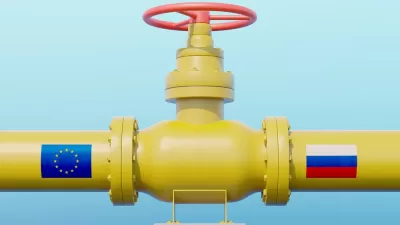It will cost more than $50 billion to transform the "once sleepy" Black Sea resort of Sochi into the "sleek host" of the 2014 Winter Olympics, writes David M. Herszenhorn. The most expensive games ever is a pet project of President Vladimir V. Putin.
Herszenhorn examines what 70,000 construction workers toiling 24 hours a day are aiming to complete by this time next year.
"Dozens of new transit hubs, including hulking rail stations and glittering glass-and-steel airline terminals, are at various stages of completion. Laborers are laying hundreds of miles of roadways, renovating thousands of hotel rooms and building thousands more. Then there are the 13 official sites, split between a coastal complex and a mountain complex. They include a 40,000-seat stadium, two hockey arenas, two skating arenas and an “Ice Cube” for curling, as well as sites for skiing, snowboarding, a biathlon and other outdoor events."
The immense construction effort is being framed as an opportunity for regional development by the President's personal spokesman, Dmitri S. Peskov, who "called the scope of the project comparable to the 'reconstruction of cities and towns after World War II.'”
"Parts of Sochi look less like a postwar reconstruction zone and more like the target of a sustained assault by rampaging aliens," observes Herszenhorn. "In some places, cavernous pits open deep into the ground. In others, unfinished elevated train tracks halt in midair. Scaffolding abounds. Some neighborhoods are filled with so much latticed steelwork they make the city of 350,000 look like a child’s outsized Erector Set."
FULL STORY: Putin’s Vision of Olympic Glory Meets a More Earthbound Reality in Sochi

Planetizen Federal Action Tracker
A weekly monitor of how Trump’s orders and actions are impacting planners and planning in America.

Restaurant Patios Were a Pandemic Win — Why Were They so Hard to Keep?
Social distancing requirements and changes in travel patterns prompted cities to pilot new uses for street and sidewalk space. Then it got complicated.

Map: Where Senate Republicans Want to Sell Your Public Lands
For public land advocates, the Senate Republicans’ proposal to sell millions of acres of public land in the West is “the biggest fight of their careers.”

Maui's Vacation Rental Debate Turns Ugly
Verbal attacks, misinformation campaigns and fistfights plague a high-stakes debate to convert thousands of vacation rentals into long-term housing.

San Francisco Suspends Traffic Calming Amidst Record Deaths
Citing “a challenging fiscal landscape,” the city will cease the program on the heels of 42 traffic deaths, including 24 pedestrians.

California Homeless Arrests, Citations Spike After Ruling
An investigation reveals that anti-homeless actions increased up to 500% after Grants Pass v. Johnson — even in cities claiming no policy change.
Urban Design for Planners 1: Software Tools
This six-course series explores essential urban design concepts using open source software and equips planners with the tools they need to participate fully in the urban design process.
Planning for Universal Design
Learn the tools for implementing Universal Design in planning regulations.
Heyer Gruel & Associates PA
JM Goldson LLC
Custer County Colorado
City of Camden Redevelopment Agency
City of Astoria
Transportation Research & Education Center (TREC) at Portland State University
Camden Redevelopment Agency
City of Claremont
Municipality of Princeton (NJ)



























